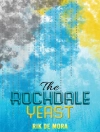In ‘The Herland Trilogy: Moving the Mountain, Herland, With Her in Ourland, ‘ Charlotte Perkins Gilman presents a thought-provoking exploration of gender equality and utopian ideals through a unique narrative structure. Comprising three distinct yet interconnected works, the trilogy examines the lives of an all-female society, Herland, where traditional gender roles are upended, and communal living fosters a nurturing social order. Gilman’s prose is imbued with a didactic tone and sharp wit, making use of vivid imagery and rich characterization to immerse readers in a world that both mirrors and critiques early 20th-century societal norms, ultimately advocating for women’s autonomy and the reformation of societal structures. Charlotte Perkins Gilman, a prominent feminist thinker and writer, drew on her personal experiences with postpartum depression and gender-based oppression to inform her writing. An advocate for women’s rights, Gilman was heavily influenced by the changing societal landscapes of her time, making her works not only a reflection of her beliefs but also a commentary on the progressive movements surrounding women’s suffrage and liberation. This trilogy is a must-read for those interested in feminist literature and utopian studies. It invites readers to challenge their perceptions of gender and society, encouraging a reexamination of contemporary values. Gilman’s insightful and imaginative narrative offers both inspiration and provocation, making it a crucial addition to modern discussions on equality.
Despre autor
Charlotte Perkins Gilman (1860-1935) was a prominent American feminist, sociologist, novelist, and lecturer for social reform. Her literary contributions, especially ‘The Herland Trilogy’, have cemented her position as a forward-thinking writer who challenged the patriarchal norms of her time. Gilman’s ‘The Herland Trilogy’, encompassing ‘Moving the Mountain’ (1911), ‘Herland’ (1915), and ‘With Her in Ourland’ (1916), is a landmark in feminist literature. These utopian novels explore gender roles, collective social progress, and critique the status quo of societal norms. ‘Herland’, the trilogy’s centerpiece, envisions an all-female society and delves into themes of cooperation and peace, contrasting sharply with the male-dominated world. Gilman’s exploration and subsequent advocacy for gender equality and economic independence are evident throughout her works. Her idiosyncratic literary style combined with her didactic goals produced a body of work aimed not merely at entertaining, but educating her audience on the social issues of the day. Gilman is also known for her semi-autobiographical short story ‘The Yellow Wallpaper’, which is a critical piece in studying the psychological and societal pressures on women. Her prolific output and incisive critique of women’s societal roles make her an essential study in American feminist literature.












